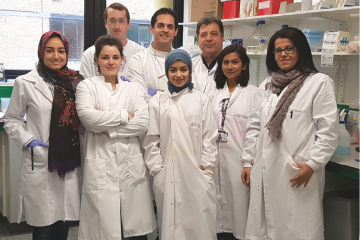PhD Studentship
Genetic screens in intestinal/colon organoid (mini-gut) culture using the CRISPR-Cas9 system

At a glance
Completed
Award date
July 2017 - December 2020
Grant amount
£100,125
Principal investigator
Dr Abdolrahman Shams Nateri
Co-investigator(s)
Institute
University of Nottingham
R
- Replacement
Read the abstract
View the grant profile on GtR
